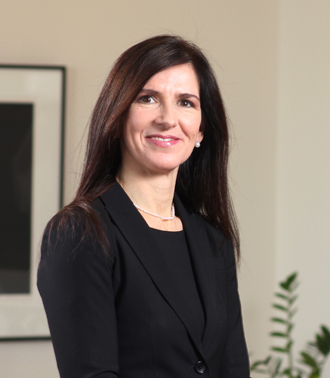Denial of Cert in Newman: Looking Forward
For the past year, the extent to which insider trading liability reaches certain providers (tippers) or recipients (tippees) of material nonpublic information has been a hotly debated topic. The debate was launched in December 2014, when the Second Circuit issued an opinion in United States v. Newman overturning the convictions of two hedge fund portfolio managers who allegedly received confidential insider information due to a lack of proof regarding the "personal benefits" received by the tippers or the knowledge of any "personal benefits" by the tippees.1 The US Government thereafter filed a petition for certiorari in the Supreme Court seeking review of this decision. On October 5, 2015, the Supreme Court denied without comment the US Government's request. For the time being, this ends the government's quest to seek clarification from the Supreme Court regarding what constitutes a personal benefit for purposes of tipper-tippee liability.
Background
In Dirks v. S.E.C., the Supreme Court established the foundational "personal benefit" standard in insider trading cases to determine whether an individual insider breached their fiduciary duty by "tipping" material nonpublic information.2 The Court, in weighing the costs and benefits of a robust tippee liability regime, and noting the occurrence of accidental or mistaken disclosures, reasoned that "[t]he need for a ban on some tippee trading is clear" and that "[n]ot only are insiders forbidden by their fiduciary relationship from personally using undisclosed corporate information to their advantage, but they may not give such information to an outsider for the same improper purpose of exploiting the information for their personal gain."3 Thus, the Court stated that, in order to determine whether a tipper breached his fiduciary duty, the relevant test asks "whether the insider personally will benefit, direct or indirectly, from his disclosure."4 In so doing, the Court stated that while a personal benefit could include pecuniary gains or reputational benefits that later result in future earnings, a breach may also occur when the tipper provides information to a trading relative or friend.5 Furthermore, as to a tippee, the Court stated that a tippee is equally liable if he knows or should know of the tipper's personal benefit.6
In Newman, the Second Circuit limited the scope of what qualifies as a personal benefit. In that case, the hedge fund manager defendants argued that there was no liability where there was no evidence that (i) the company insiders who disclosed insider information to certain hedge fund analysts with whom the insiders were somehow personally acquainted did so for a personal benefit, or (ii) the defendants were aware that any insiders had received a personal benefit in exchange for passing the information. The Second Circuit held that although the "personal benefit" standard is "permissive," it "does not suggest that the Government may prove the receipt of a personal benefit by the mere fact of a friendship, particularly of a casual or social nature."7 Instead, the Second Circuit held that, to the extent "a personal benefit may be inferred from a personal relationship between the tipper and tippee, . . . such an inference is impermissible in the absence of proof of a meaningful close personal relationship that generates an exchange that is objective, consequential, and represents at least a potential gain of a pecuniary or similarly valuable nature."8
For this reason, the Government's petition for certiorari requested the Court to take on the question "whether the court of appeals [in Newman] erroneously departed from this Court's decision in Dirks" by setting forth this standard given that "[t]he Second Circuit has long had an outsize influence on the development and enforcement of the securities laws-even when it is wrong."9
Criticism of Newman by Other Courts
This summer, Judge Rakoff of the Southern District of New York (sitting by designation) authored a Ninth Circuit opinion in United States v. Salman criticizing the Second Circuit's decision in Newman.10 In that decision, which arose out of a fact pattern involving various extended family members, the Ninth Circuit held that "[p]roof that the insider disclosed material nonpublic information with the intent to benefit a trading relative or friend is sufficient to establish the breach of fiduciary duty element of insider trading."11 The Ninth Circuit stated that, while Newman was not binding on it, they could not "lightly ignore" the Second Circuit's opinion "in an area of law that [the Second Circuit] has frequently encountered."12 Laying out the facts and holding in Newman, the Ninth Circuit stated that, regardless of the Second Circuit's holding, Newman itself recognized that "personal benefit is broadly defined to include not only pecuniary gain, but also, inter alia, . . . the benefit one would obtain from simply making a gift of confidential information to a trading relative or friend."13 Therefore, the Ninth Circuit stated that it would follow Dirks in reaching its holding and affirming the lower court's convictions.14
The decision in Salman echoed concerns raised by Judge Rakoff in Securities and Exchange Commission v. Payton earlier in the year.15 That action arose out of alleged insider trading activities by a chain of tipper-tippees based on supposed material nonpublic information regarding IBM's 2009 acquisition of SPSS, Inc. The facts of the case briefly are as follows:
- Trent Martin, a registered broker-dealer, acquired allegedly material nonpublic information about the acquisition from his close friend, Michael Dallas.
- Dallas was a law firm associate assigned to work on the transaction. He and Martin routinely shared information about their jobs, understanding that the information was nonpublic.
- Martin roomed with Thomas Conradt, who took the lead in most of their living arrangements and also assisted Martin in addressing a criminal assault charge.
- Martin provided to Conradt information he learned from Dallas.
- Conradt then bought SPSS securities. He also told some of his coworkers at a brokerage about the pending SPSS transaction who also purchased SPSS securities.16
Defendants moved to dismiss the SEC's complaint based mainly on the remoteness of the relationships among the individuals and the lack of knowledge of personal benefits. In his decision denying the motion, Judge Rakoff noted that, when it comes to personal benefits inferred on the basis of a close relationship, Newman may misinterpret the scope of Dirks.17 Nevertheless, he found that the SEC's complaint met the definition of "benefit" as set forth "in either Dirks or Newman," then applied the "more onerous standard of benefit set forth in Newman" in his analysis denying the motion.18
Interestingly, the parallel criminal proceedings were dismissed in February 2015, prior to Judge Rakoff's opinion.19 Although the defendants had previously pled guilty, the Court vacated the pleas in light of Newman.20 Consequently, the US Attorneys' Office sought an order of nolle prosequi issued in the cases.21
Although trial in the SEC action was set for September 21, 2015, Judge Rakoff adjourned the trial date to await the Supreme Court's decision on the then-pending writ of certiorari in Newman, giving the parties two business days to contact chambers after the Supreme Court resolved the issue. For those with an interest in this area, it will be worthwhile to keep a close eye on that action as it will likely provide additional color on Newman.
-
United States v. Newman, Case Nos. 13-1837-cr (L) and 13-1917-cr (con) (2d Cir. Dec. 10, 2014). For discussion on the Second Circuit's opinion, see the following Advisory by Arnold & Porter LLP: Second Circuit Rejects Government's Expansive Theory of Insider Trading (Dec. 17, 2014).
-
-
Dirks v. S.E.C., 463 US 646, 659 (1983).
-
-
-
-
773 F.3d 438, 452 (2d Cir. 2014) (emphasis added).
-
-
Petition for Writ of Certiorari at I, 33, United States v. Newman, No. 15-137, 2015 WL 452753 (July 30, 2015).
-
United States v. Salman, 792 F.3d 1087 (9th Cir. July 6, 2015).
-
-
-
Id. at 1093-94 (citing Newman, 773 F.3d at 452) (quotations omitted).
-
Notably, in its petition for certiorari, the Government cited the conflict between the Ninth Circuit's ruling in Salman and the Second Circuit's ruling in Newman as one reason why the Supreme Court should review the Newman decision. See Petition for Writ of Certiorari, Newman, at 22. The defendant in Salman has not yet filed a petition for certiorari.
-
No. 14 Civ. 4644, 2015 WL 1538454 (S.D.N.Y. Apr. 6, 2015). Prior to joining Arnold & Porter LLP, Daniel Hawke worked on the SEC's investigation of this matter.
-
-
-
-
See United States v. Conradt et al., No. 1:12-cr-00887-ALC (S.D.N.Y.), Dkt. 166.
-
-
Id.; see also id. at Dkt. 178.




